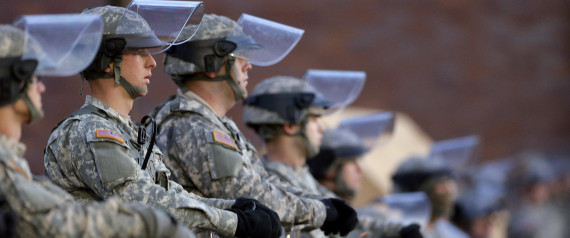
After a string of high profile police killings over two-hundred communities across the country erupted in massive protests and sustained acts of civil disobedience. People flooded the streets demanding an end to police brutality and a recognition that black lives matter.
The state response to this growing movement has been anemic. Task forces were formed and body cameras funded, but the conversations in mainstream media and the halls of power have focused exclusively on tweaking policing practices. This moment calls for more. It is time to rethink not only the practices but the purposes of policing in this country.
If the proof is in the pudding the purpose of policing is the control and surveillance of low-income black and brown communities, who are over-policed and under-protected. Police have become fishing nets for mass incarceration. In some towns, such as Ferguson, they are also tax collectors ticketing low income citizens to support bankrupt municipalities. This is not new. The origins of policing are rooted in slave patrols formed to deny those brave enough to challenge white supremacy their freedom. And the role of police as conveyor belts to courthouses and cages was solidified after implementation of the black codes, which provided legal justification for the continued economic exploitation of black bodies.
For those of us who reject racialized control and profiteering as legitimate law enforcement aims and believe that the purpose of police should be to make us safer–we have work to do. If safety is to be the point we must not tweak but rather transform every inch of policing from recruitment to discipline. We must also interrogate the very premise of policing. Policing models in this country — includingBroken Windowsand “Community Policing” — rely on the criminalization of black bodies and the idea that more police in more places with more guns will make black communities safer (interestingly this is not how affluent white communities are policed). This despite countless studies indicating that educational attainment, access to jobs, stable housing and mental health services are more effective (and less costly) solutions to crime. The stubborn attachment to current models of policing is similar to the NRA’s insistence after the massacre at Sandy Hook that the solution to school shootings is to give every teacher a gun.
For more, go here.

